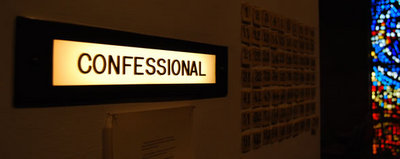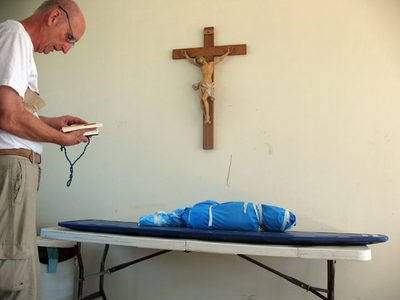
So begins one of the most widely recited prayers in the Catholic Church, the penitential Act of Contrition, said at the conclusion of the Sacrament of Reconciliation.
Lent is a season for revisiting this sacrament, and for attempting to make what my nuns back in grade school used to call “a good confession.” If anyone has been away from the confessional for a while, now is a good time to make a return visit. Need help? Look no further.
A priest friend posted this on his Facebook page, and it’s as good a place as any to start: it’s an “Examination of Conscience,” based on the 10 commandments, with a variety of probing questions. Don’t be surprised if you find yourself looking at your life and your choices differently. Stealing, killing and committing adultery are more complicated than you may think.
I also dug up this essay that I wrote a couple of years ago for America magazine. It talks about my own journey back to the confessional, and what I discovered there:
The Chinese have a saying: “The beginning of wisdom is to call something by its correct name.” Perhaps that is part of it, too: we name what we are–proud, greedy, lustful, petty, selfish, untruthful–and become aware. With penance and practice, we strive to be better. Wisdom begins.
Or so we hope. And so we pray: “I firmly resolve with the help of thy grace to confess my sins, to do penance, and to amend my life, Amen.”
Those final words of the Act of Contrition put it so succinctly and clearly. The purpose of the sacrament, really, is to amend life. To improve on what is there.
And with that improvement, I think, comes this beautiful promise at the heart of our faith: the promise that we will rise. We can be uplifted. Resurrection is available. All of us can roll aside the stone of our personal tomb and stagger, blinking, into the sun. As more than a few preachers have proclaimed: the paschal mystery didn’t end on Good Friday but on Easter Sunday.
So it can be with each of us, too.
The profound act of being reconciled with God enables us to live Easter every time we emerge from that confessional. We breathe again. We see light again. We hope again. We are given grace.
And who doesn’t need that — especially now?

